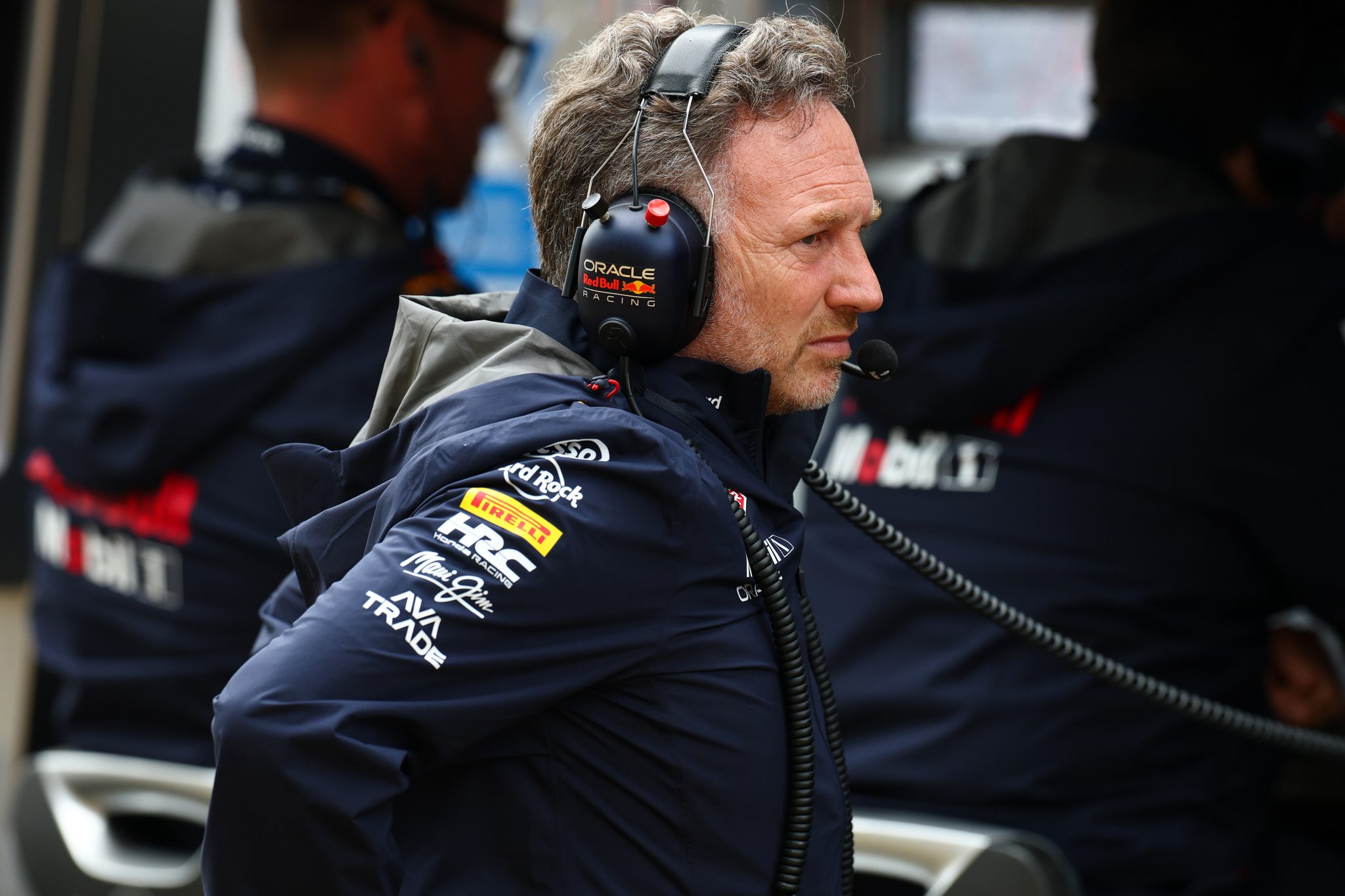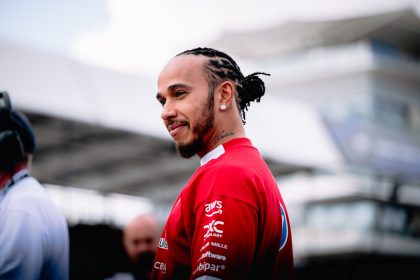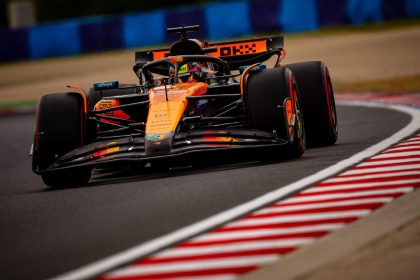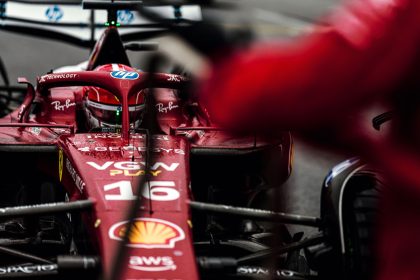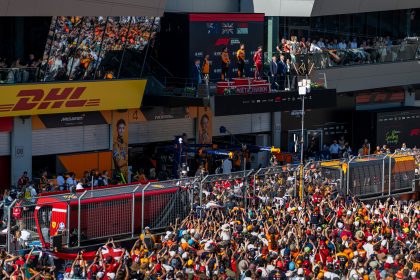If you’ve ever wondered what it feels like to watch a dynasty crumble—not in a blaze of glory, but in the slow, grinding gears of Formula 1 politics—then pour yourself a strong espresso and settle in. On July 10, 2025, Christian Horner, the man who turned Red Bull Racing from fizzy upstart to serial champion, was shown the door after two decades at the helm. The paddock is abuzz, the fans are divided, and the echoes of history are deafening. Let’s take a walk through the ruins and the triumphs, shall we?
- The Shockwave: Horner Out, Mekies In
- The Numbers Don’t Lie: Horner’s Red Bull Legacy
- The Anatomy of a Fall: From Dominance to Doubt
- The Verstappen Question: Stay or Go?
- Lessons from History: When the Boss Leaves
- The Mekies Gamble: Can the New Guard Deliver?
- The Human Cost: Loyalty, Rivalry, and the Weight of Expectation
- The Road Ahead: Red Bull’s Next Chapter
The Shockwave: Horner Out, Mekies In
It’s not every day that a team principal with eight drivers’ titles and six constructors’ crowns is handed his hat and coat. Yet, as of yesterday, Christian Horner is no longer the CEO and Team Principal of Red Bull Racing. In his place steps Laurent Mekies, fresh from the Racing Bulls, while Alan Permane takes over Mekies’ old job. The official line is managerial reshuffle. The unofficial line? Well, that depends on which side of the paddock you’re eavesdropping on.
Horner’s own words, delivered via social media, were as dignified as they were bittersweet:
After an incredible journey of 20 years together, it is with a heavy heart that today I say goodbye to the team I have absolutely loved… It’s been a privilege being part of and leading this epic team and I am so proud of our collective accomplishments and you all.Christian Horner
You can read the full statement and see the emotional tributes from drivers here: formula1.com.
The Numbers Don’t Lie: Horner’s Red Bull Legacy
Let’s get the statistics out of the way, because if there’s one thing Formula 1 fans love more than a conspiracy theory, it’s a good table of numbers. Under Horner’s stewardship (2005–2025):
| Category | Total (2005–2025) |
|---|---|
| Drivers’ Championships | 8 |
| Constructors’ Titles | 6 |
| Race Wins | 124 |
| Pole Positions | 107 |
| Podiums | 287 |
These aren’t just numbers; they’re the bones of a dynasty. Red Bull’s rise from the ashes of Jaguar Racing to the top of the sport was no accident. It was the result of shrewd hires (Adrian Newey, anyone?), bold driver choices (Vettel, Verstappen), and a culture that, for a time, seemed immune to the usual F1 infighting.
The Anatomy of a Fall: From Dominance to Doubt
But dynasties, like milk left out in the Milton Keynes sun, eventually sour. Red Bull’s decline didn’t happen overnight. The warning signs were there: Adrian Newey’s departure to Aston Martin, Jonathan Wheatley’s exit to Sauber, and a string of high-profile resignations that would make even Ferrari blush. The team’s form on track has been equally alarming—just two wins this season, and a distant fourth in the Constructors’ standings, 288 points behind McLaren.
As the BBC put it, The dismissal follows months of declining form for the team and internal disputes at the highest level. (BBC Sport)
And then there’s the off-track drama: allegations of inappropriate behavior, internal investigations, and a power struggle worthy of a Shakespearean tragedy. Horner was twice cleared of the claims, but the damage was done. The Red Bull empire, once so cohesive, had fractured into camps.
The Verstappen Question: Stay or Go?
If you want to know how seismic this change is, look no further than Max Verstappen. The Dutchman, four-time world champion and the team’s talisman, has been the subject of feverish speculation. Will he stay, or will he bolt for Mercedes, who have been courting him with all the subtlety of a sledgehammer?
Verstappen’s own tribute to Horner was short and pointed:
From my first race win, to four World Championships, we have shared incredible successes. Winning memorable races and breaking countless records. Thank you for everything, Christian!Max Verstappen
See Verstappen’s full reaction here: formula1.com.
The rumor mill is in overdrive. Some say Horner’s exit is a last-ditch attempt to keep Verstappen in the fold. Others whisper that Verstappen’s mind is already made up, and that the team is bracing for a post-Max era. As one BBC F1 reporter put it:
The talk around the paddock, certainly last weekend, was all about whether Max Verstappen would stay at Red Bull or would the situation with Christian Horner and their lack of results force him to step away… He wouldn’t say he’s definitely committed to Red Bull.Jennie Gow, BBC F1
Lessons from History: When the Boss Leaves
If you think Red Bull is immune to the chaos that follows the departure of a long-serving team principal, think again. Formula 1 history is littered with cautionary tales:
- Jean Todt’s exit from Ferrari (2008): The Scuderia won the Constructors’ title that year, but the golden era was over. Ferrari hasn’t won a drivers’ title since.
- Ron Dennis leaving McLaren (2009): The team lost its edge, stumbled through management reshuffles, and spent years in the wilderness.
- Frank Williams stepping back (2013): Williams went from powerhouse to backmarker, eventually selling the team in 2020.
The pattern is clear: stability breeds success, and upheaval breeds uncertainty. Red Bull’s challenge now is to avoid the fate of these once-great teams.
The Mekies Gamble: Can the New Guard Deliver?
Laurent Mekies is no stranger to pressure. His CV includes stints at Ferrari and the FIA, and he’s credited with steadying the Racing Bulls ship. But taking over Red Bull Racing is another matter entirely. The team is at a crossroads: new regulations loom in 2026, the Ford partnership is on the horizon, and the Verstappen question hangs over everything.
Red Bull’s own statement was full of corporate platitudes, but the subtext was clear: this is a gamble.
We would like to thank Christian Horner for his exceptional work over the last 20 years. With his tireless commitment, experience, expertise and innovative thinking, he has been instrumental in establishing Red Bull Racing as one of the most successful and attractive teams in Formula 1. Thank you for everything, Christian, and you will forever remain an important part of our team history.Oliver Mintzlaff, Red Bull CEO Corporate Projects and Investments
For a taste of the official narrative, see the full announcement: Sky Sports.
The Human Cost: Loyalty, Rivalry, and the Weight of Expectation
Formula 1 is a sport built on relentless ambition, but it’s also a sport of people—of relationships forged in the crucible of competition. Horner’s farewell was as much about the people as the trophies:
Every one of you, the amazing people at the factory, have been the heart and soul of everything that we have achieved. Win and lose, every step of the way, we have stood by each other as one and I will never forget that.Christian Horner
The tributes from drivers, engineers, and rivals alike have poured in. Even those who clashed with Horner over the years acknowledge his impact. As the saying goes, You don’t know what you’ve got till it’s gone. Or, in the words of a certain Italian team boss from the 1980s, In Formula 1, you’re only as good as your last race.
For a visual retrospective, watch: Christian Horner’s time with Red Bull comes to an end – F1.
The Road Ahead: Red Bull’s Next Chapter
So, what now? Red Bull faces a future without the man who defined its identity. The team must navigate a minefield of technical, political, and human challenges. The 2026 regulations are a ticking clock. The Ford partnership is a leap into the unknown. And the Verstappen saga is far from over.
If history teaches us anything, it’s that the next few seasons will be turbulent. Teams rarely emerge from such seismic changes unscathed. But Formula 1 is nothing if not unpredictable. Perhaps Red Bull will reinvent itself, as McLaren is finally doing after years in the wilderness. Or perhaps this is the beginning of a long, slow fade.
For a sharp analysis of what comes next, read: The key questions as Horner leaves Red Bull.







